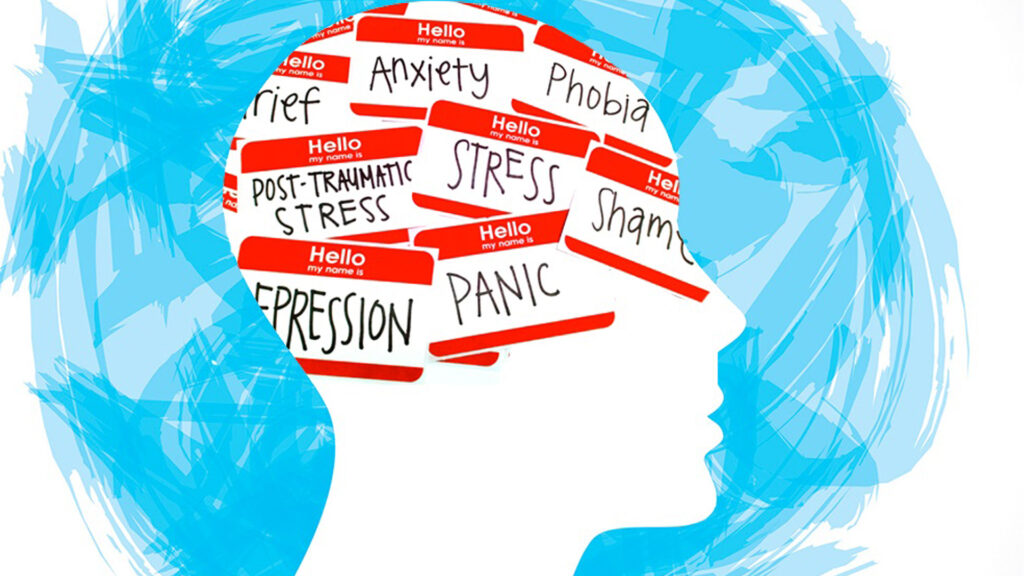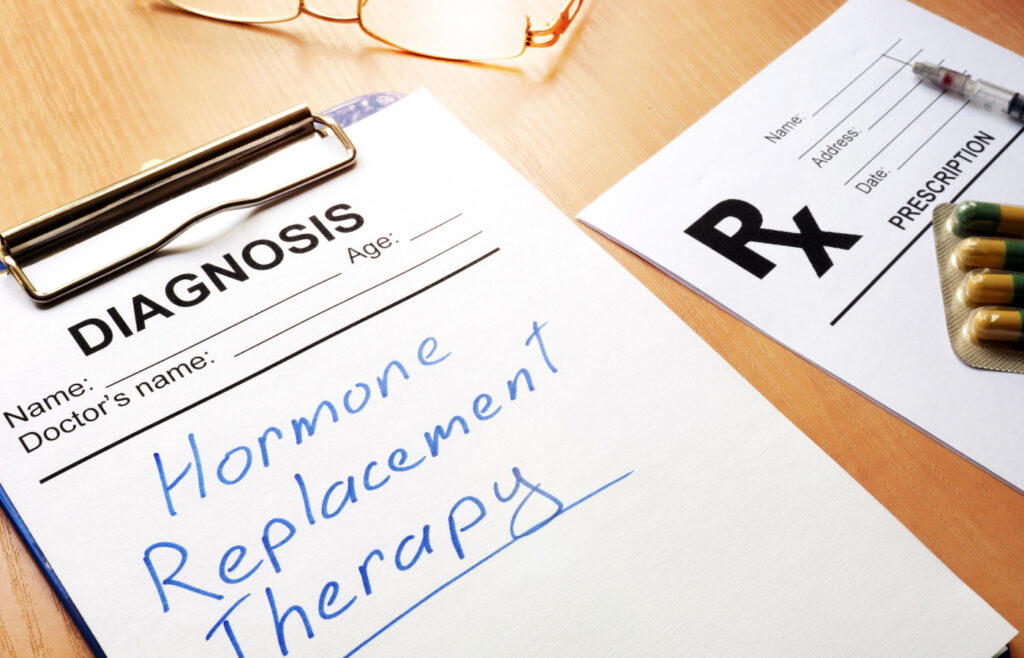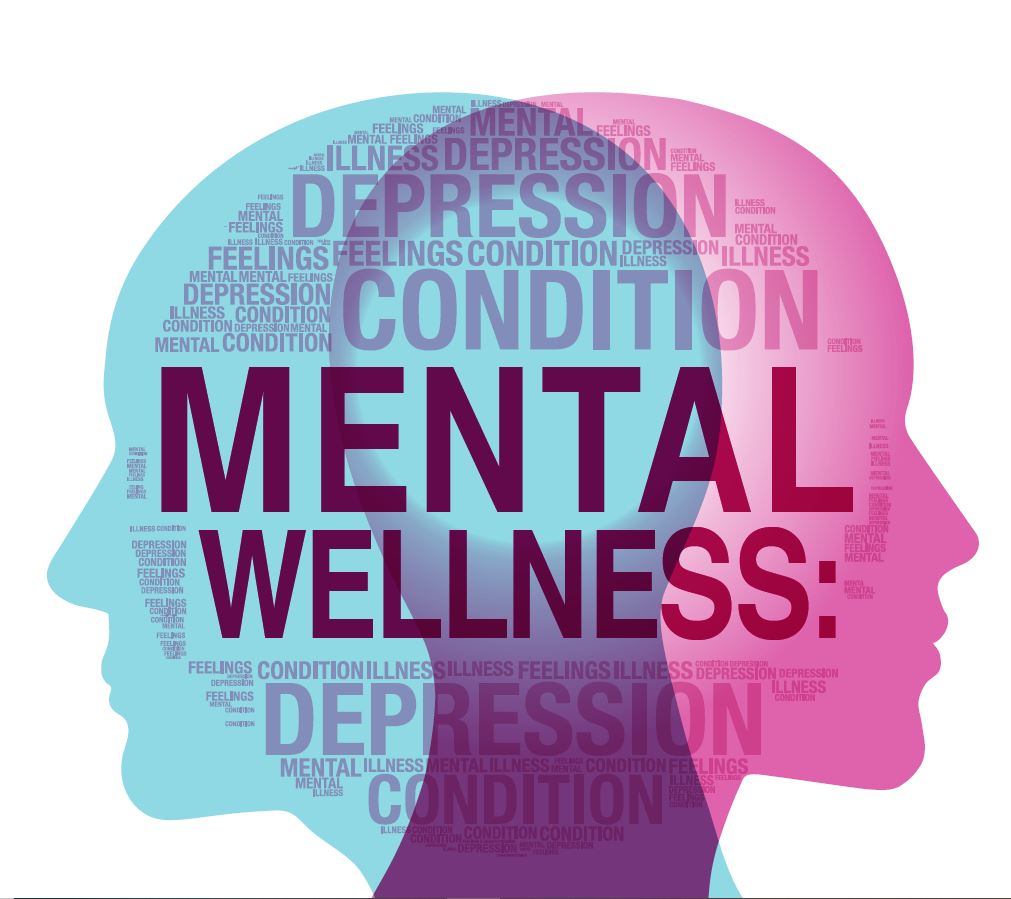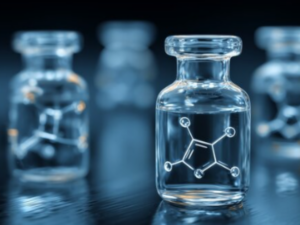Did you know that there are around 57.8 million people in the United States with mental illnesses as of 2021? Mental health problems are very common and come in many different forms. Many people turn to medications to treat these issues, but medications don’t get to the root of the problem.
They only veil your symptoms and may make you feel that you’re no longer yourself. Hormone treatment may be a better option. Hormones and mental health have a stronger connection than you might expect.
If there is something wrong with your hormone levels, this might cause mental health issues. Hormone therapy may help reduce these issues and make you feel more like yourself again. But what is the connection between mental health and hormone levels?
How can one influence the other? Keep reading and learn more about this connection and how hormone therapy can improve your life.
What Is the Connection Between Hormones and Mental Health?
Hormones directly affect your mental health. Many people don’t know much about their hormones or what they do for their bodies. Many hormones regulate different functions in your brain and body.
Some are important for regulating your appetite and mood. Others may regulate sexual function or your sleep cycle. Others may be in charge of your alertness or energy.
The brain produces a variety of hormones, but other organs also have this power. Most people know that the testicles and ovaries produce sex hormones. Common sex hormones include testosterone and estrogen.
The adrenal glands, which are small structures above the kidneys, also secrete hormones. The body works together in a very efficient manner to make sure that all these hormones are produced in the right concentrations. This is done naturally in most healthy people.
But some people are not able to produce enough hormones. Some produce too much of certain hormones. Either outcome can affect your mental health.
The Details
Hormonal imbalances usually affect a person’s mental health negatively. When there is a hormone imbalance in your body, it is no longer possible for your brain to function properly. It may lack the hormones necessary to complete certain functions.
The functions it completes may not be as efficient. Suppose you have low levels of cortisol because your adrenal glands aren’t working properly. Very low levels of cortisol are associated with fatigue and depression.
You could exercise and chug a cup of coffee, but this would not improve your energy. This is because the root of the problem is a hormonal imbalance. But if your cortisol levels are too high, you could experience extreme stress and anxiety.
You might not have an appetite, you may lose weight, and you may feel irritable all the time. This is an example of how every hormone in your body needs to achieve a perfect balance. If it is not possible to achieve this balance, your mental health may suffer.
How Hormones Affect Mental Health for Men and Women

Some hormonal imbalances affect the mental health of men and women differently. This is because men and women naturally have different hormone levels. Men have more testosterone than women.
Many people think that women don’t have any testosterone since it is a male sex hormone, but this is not true. All women have testosterone, but at much lower levels compared to men. Men also have female hormones such as estrogen, but at low levels.
These sex hormones are very important for a person’s mental health. This is because they affect the brain in different ways. They may also cause various dysfunctions throughout the body if they aren’t regulated.
Consider female hormones like estrogen and progesterone. These hormones fluctuate throughout a woman’s menstrual cycle. Women often have changes in their mental health before they’re going to have their period.
These changes are usually minor in most women. They may become more irritable, anxious, or depressed. But some women experience severe mood swings before their periods due to intense hormone fluctuations.
This is called Premenstrual Dysphoric Disorder (PMDD). This can cause extreme anger, depression, suicidal behavior, and more. These mood swings can be so severe that it can be difficult for these women to lead normal lives or have long-term relationships.
Changes in mental health due to hormones can also be seen during menopause. Menopause is when a woman’s body experiences a drastic reduction in estrogen and other female hormones. This can cause depression, fatigue, anxiety, and other problems.
Some women may also experience mood swings, while others may feel apathetic. Men experience various mental health issues due to hormones as well.
What You Need to Know
If a man has too much testosterone, he may get angry easily over small things.
He may be more likely to engage in risky or violent behavior. Men with low testosterone may be more prone to depression and anxiety. They may also feel more fatigued and have low self-esteem.
Men can sometimes have high levels of female hormones like estrogen. This can make men feel more emotional. They may often go into bouts of depression or anger.
Women can also have too much testosterone. This may make them feel more irritated and angry all the time. Similar to men with too much testosterone, they may be more violent and prone to bouts of rage.
These are only a few examples of why men and women need to have balanced hormones. Many people don’t realize that they have a hormone imbalance. They may think they feel this way because they were born that way.
But this is not always the case. If you suspect that you might have a hormone imbalance, you should get a test and see. This is also important because hormone imbalances can be dangerous to your health.
Some may damage your muscles and bones, while others may cause erectile dysfunction and other issues. Some may lead to weight gain, weight loss, and the development of certain cancers, too.
What Causes a Hormonal Imbalance?
Many conditions may cause hormonal imbalances. It is not known why some of these imbalances occur. Some may start during childhood or puberty.
Others may not start until a person reaches adulthood or late adulthood. If a hormonal imbalance starts during childhood or adolescence, the child may not go through puberty properly. A boy who has low testosterone may not have proper sexual development.
His voice may not drop very much, and he may not develop much body or facial hair. Girls with hormonal imbalances may not have their periods when they’re supposed to. They may not develop breasts or pubic hair either.
These are all common signs that a child is experiencing a hormonal imbalance. It is important to treat this early before the imbalance causes permanent problems. These children may also experience mood swings, apathy, and other emotional problems.
Hormonal imbalances that happen later in life can also be dangerous. Consider polycystic ovarian syndrome (PCOS). This condition is characterized by high levels of testosterone in women and often low female hormones.
This happens when there are many small cysts on a woman’s ovaries. This can cause infertility, acne, and obesity. It is also strongly correlated with depression, low self-esteem, and sometimes suicidal behavior.
These women may also be more prone to anger and mood swings. It is not known why this condition arises. It may have a genetic component.
It may also be more common in women who are obese. This is because excess fat may influence a person’s hormone levels. Other hormone disorders involve the thyroid, the adrenal glands, and so on.
What to Know
Most people don’t know why hormonal imbalances happen. Some have more genetic correlations than others. Others may seem to have no distinct cause and may show up without warning.
Those that may be genetic are often more common. If members of your immediate family have PCOS, for example, you may be more likely to have it, too. Some hormone imbalances are caused by a physical abnormality in the brain.
In rare cases, they can be caused by pituitary tumors. The pituitary gland is a small structure in the center of the brain. It is responsible for producing hormones that stimulate other hormones throughout the body.
It is especially responsible for the human growth hormone. This hormone causes children to grow into adults. If a child has a tumor pressing on their pituitary gland, they may develop acromegaly.
This is known as giantism. This condition can also affect adults. It may cause people to grow to abnormal heights. Their bones may also thicken and become heavy or deformed.
These tumors can also cause changes in a person’s mood. It isn’t necessary to know the cause of a person’s hormonal imbalance to fix it. Many imbalances can be fixed with the health benefits of hormone therapy.
Hormone therapy is a viable option for men and women. You may find that choosing this therapy can free you from your emotional distress. If your mental health issues are caused by imbalanced hormones, treatment may solve these issues.
How to Treat Hormone Imbalances

Suppose you have depression because you are going through menopause. While you can take antidepressants to help improve your mental health, they may not do very much.
They may make you feel numb, and some of the pills may not do anything.
Many people have to take these pills for the rest of their lives. But this may not be necessary if you can get to the root of the problem. Depression often occurs in older women when their estrogen levels drop.
They may also experience more mood swings and be more prone to anger. Supplementing your body with estrogen may solve these issues. Many women who try hormone therapy find that they feel more like themselves after getting treated.
They may also feel more energetic and happier. Menopause is not just for older women, either. Young women may experience early menopause.
Menopause is also induced if a woman has her ovaries removed for medical reasons. Early menopause can cause a variety of issues that go beyond mental health. Hormone therapy can help these issues and help a woman’s body function as it should.
Men can also benefit from hormone therapy. Many men have low testosterone without realizing it.
Treating Mental Health Issues With Hormone Treatment
Low testosterone can make men feel tired, weak, and depressed.
It may also cause erectile dysfunction, low sex drive, and other issues. Chronic low testosterone may make a man’s muscles and bones weaken and be more prone to damage. Supplementing a man’s body with testosterone can help avoid these dangers.
Men going through testosterone replacement therapy may feel more confident, happy, and energetic. They may have better sexual health, too. Hormone treatments come in different forms.
Some are injected into the body, while others are patches that stick to your skin. Others are pills that you swallow. Hormone therapy works the same way regardless of its method of administration. Once you start going through this therapy, you may find that your mental health is in a better state than it ever was before.
All About Hormones and Mental Health
Hormones and mental health have a stronger connection than most people realize. This is because your hormones need to be finely balanced for your body and brain to function properly. If your hormones are out of balance, you could experience a host of different mental health issues.
Getting to the root of the problem with hormone therapy can help. Are you ready to try hormone therapy? Check out our hormone therapy options to learn more.












